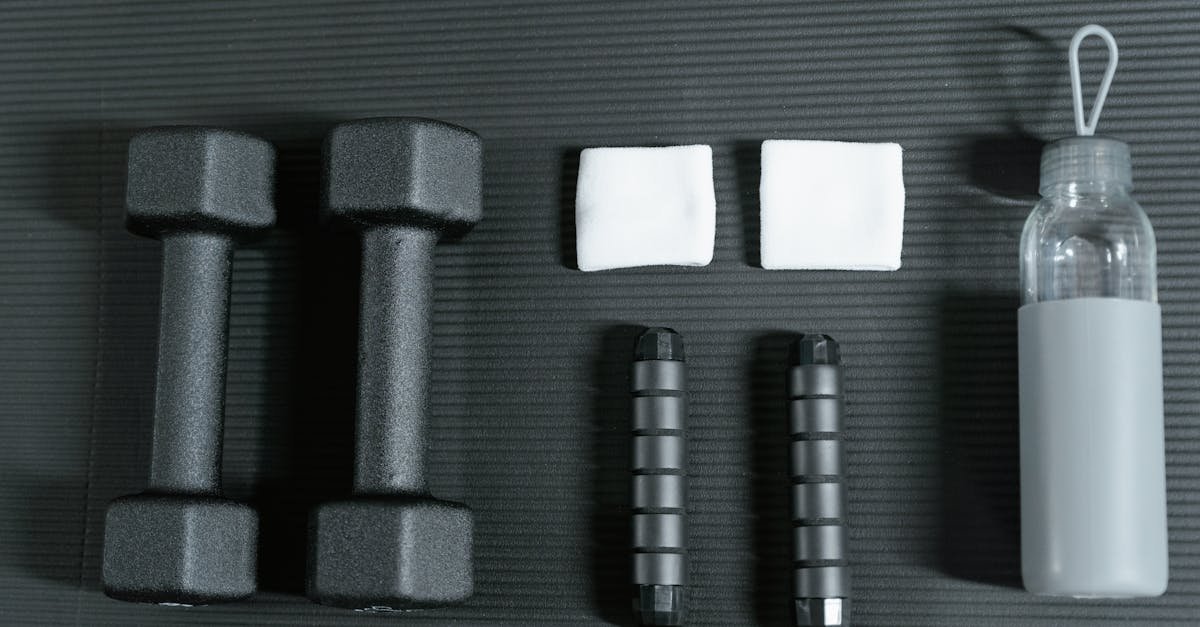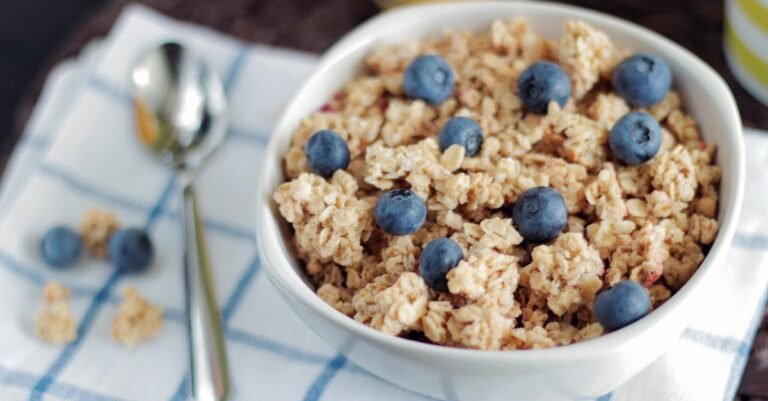Table of Contents
- Building Lean Muscle: Nutrition Essentials
- Why Nutrition is King (Even More Than Lifting?)
- Macronutrients: The Big Three for Muscle Growth
- Caloric Surplus: Eating to Grow (Without Getting Fluffy)
- Nutrient Timing: Does it Really Matter?
- Hydration: The Unsung Hero of Muscle Growth
- Micronutrients and Supplements: The Supporting Cast
- Consistency is Key: Putting It All Together
- Conclusion: Fueling Your Journey to a Leaner, Stronger You
- Frequently Asked Questions (FAQs)
Building Lean Muscle: Nutrition Essentials
So, you’re hitting the gym, pushing those weights, feeling the burn, and dreaming of sculpting a leaner, stronger physique. That’s awesome! But let me ask you this: are you giving your nutrition the same level of attention? You can spend hours clangin’ and bangin’ in the weight room, but if your diet isn’t dialed in, you’re essentially trying to build a brick house without any bricks. Building lean muscle isn’t just about the workout; it’s a partnership, and nutrition is arguably the more demanding partner. Ready to learn how to fuel your body for serious gains? Let’s dive in!
Why Nutrition is King (Even More Than Lifting?)
Okay, maybe “king” is a strong word, but nutrition is definitely sitting on the throne right next to training. Think about it: lifting weights creates the stimulus for muscle growth. You’re literally causing microscopic tears in your muscle fibers. That’s the signal. But what happens after the signal? That’s where nutrition comes in. It provides the raw materials – the protein, the energy – needed to repair those tears and, crucially, build the muscle back bigger and stronger than before. Without the right fuel, your body simply can’t perform this repair and growth process effectively. You might get stronger to a point, but significant muscle hypertrophy (the fancy term for muscle growth) requires a dedicated nutritional strategy.
The Muscle Building Equation: Stimulus + Fuel
It really boils down to this simple equation: Resistance Training (Stimulus) + Proper Nutrition (Fuel) = Muscle Growth. You need both sides of the equation to work. Intense training tells your body, “Hey, we need to get stronger to handle this stress!” Proper nutrition then replies, “Okay, here are the building blocks and energy you need to make that happen!” If either part is missing or inadequate, the whole process stalls. You wouldn’t expect a car to run without gas, right? Same principle applies here. Your muscles need fuel to grow.
Beyond the Biceps: The Systemic Impact of Nutrition
It’s not just about feeding the muscles you directly worked. Your overall nutritional status affects everything – hormone levels (like testosterone and growth hormone, which are crucial for muscle building), energy levels for your workouts, recovery speed between sessions, and even your immune system. Eating poorly can lead to inflammation, sluggishness, and impaired recovery, all of which sabotage your muscle building efforts. Good nutrition supports your entire system, creating an optimal environment for growth.
Macronutrients: The Big Three for Muscle Growth
When we talk about the “fuel” for muscle growth, we’re primarily talking about macronutrients: protein, carbohydrates, and fats. Getting the right balance of these three is fundamental. Let’s break them down.
Protein: The Absolute Cornerstone
You knew this was coming, right? Protein is the undisputed MVP of muscle building. Why? Because proteins are made up of amino acids, which are literally the building blocks of muscle tissue. When you train, you break down muscle protein. To repair and rebuild that tissue, you need a sufficient supply of amino acids from dietary protein. It’s like the bricks and mortar for our muscle house analogy.
How Much Protein Do You Really Need?
This is where things can get confusing, with advice ranging all over the place. Forget the basic RDA (Recommended Dietary Allowance) meant for sedentary individuals. If you’re actively training to build muscle, you need significantly more. Most research suggests a range of 1.6 to 2.2 grams of protein per kilogram of body weight (or about 0.7 to 1 gram per pound) per day is optimal for maximizing muscle protein synthesis. So, if you weigh 80 kg (176 lbs), you’d aim for roughly 128 to 176 grams of protein daily. Spreading this intake relatively evenly throughout the day (e.g., 20-40 grams per meal/snack) seems to be more effective than cramming it all into one or two meals.
Best Protein Sources for Muscle Gain
Focus on high quality, complete protein sources – those that contain all nine essential amino acids your body can’t produce on its own. Great options include:
- Lean Meats: Chicken breast, turkey breast, lean beef (sirloin, tenderloin), pork loin.
- Fish: Salmon, tuna, cod, tilapia. Fatty fish like salmon also provide beneficial omega 3 fats.
- Eggs: Whole eggs are fantastic – don’t ditch the yolk, it’s packed with nutrients!
- Dairy: Greek yogurt, cottage cheese, milk, whey and casein protein powders.
- Plant Based Options: Lentils, beans, chickpeas, tofu, tempeh, edamame, quinoa, nuts, seeds, and plant based protein powders (like soy, pea, or rice blends). While many plant sources aren’t “complete” on their own, eating a variety ensures you get all essential amino acids.
Carbohydrates: Your Performance Fuel
Carbs have gotten a bad rap in some circles, but for anyone serious about building muscle and performing well in the gym, they are absolutely essential. They are your body’s primary and preferred source of energy.
The Role of Carbs in Energy and Recovery
Carbohydrates are broken down into glucose, which is used for immediate energy or stored in your muscles and liver as glycogen. Think of glycogen as your muscles’ readily available fuel tank. Intense weightlifting heavily relies on glycogen stores. If these stores are low, your performance will suffer – you’ll feel weaker, fatigue faster, and won’t be able to provide the necessary stimulus for growth. Furthermore, carbs play a role in recovery. Consuming carbs post workout helps replenish depleted glycogen stores and can also create an insulin response, which, while sometimes feared, is actually anti catabolic (prevents muscle breakdown) and can help drive nutrients like amino acids into muscle cells.
Smart Carb Choices for Lean Gains
Not all carbs are created equal. For sustained energy and better nutrient profiles, prioritize complex carbohydrates:
- Whole Grains: Oats, brown rice, quinoa, whole wheat bread/pasta.
- Starchy Vegetables: Sweet potatoes, potatoes, squash, corn, peas.
- Fruits: Berries, bananas, apples, oranges (provide vitamins, minerals, and antioxidants too!).
- Legumes: Beans, lentils, chickpeas (also a good source of protein!).
While simpler carbs (like white rice, sugary snacks, or sports drinks) can have a place, especially around workout times for quick energy or glycogen replenishment, the bulk of your intake should come from complex sources that provide fiber and sustained energy release.
Healthy Fats: More Than Just Calories
Fats are often misunderstood, especially when the goal is “lean” muscle. But dietary fats are crucial for overall health and play a vital role in hormone production, which directly impacts muscle growth.
Hormone Production and Overall Health
Dietary fats, particularly saturated and monounsaturated fats, are essential for the production of key anabolic hormones like testosterone. Severely restricting fat intake can negatively impact hormone levels, hindering your ability to build muscle. Fats also help with the absorption of fat soluble vitamins (A, D, E, K), contribute to cell membrane health, and provide a dense source of energy. Focus on incorporating healthy fat sources:
- Unsaturated Fats: Avocados, olive oil, nuts (almonds, walnuts), seeds (chia, flax, sunflower), fatty fish (salmon, mackerel).
- Saturated Fats: Found in animal products (meat, dairy) and coconut oil. Consume these in moderation as part of a balanced diet.
Aim for fats to make up roughly 20-30% of your total daily calories, prioritizing unsaturated sources but not completely avoiding saturated fats.
Caloric Surplus: Eating to Grow (Without Getting Fluffy)
Here’s a fundamental truth: to build significant muscle mass, you generally need to consume more calories than you burn. This is known as a caloric surplus. Muscle tissue is metabolically active; building it requires energy. You can’t build something out of nothing.
Finding Your Maintenance Calories
Before you can create a surplus, you need to know your starting point: your maintenance calories. This is the number of calories you need to eat daily to maintain your current weight. There are various online calculators (like the Harris Benedict or Mifflin St Jeor equations) that can give you an estimate based on your age, gender, weight, height, and activity level. However, these are just estimates. The best way is to track your current food intake and weight for a week or two. If your weight stays stable, you’ve found your approximate maintenance level.
The “Lean Bulk”: A Calculated Surplus
Once you know your maintenance calories, you need to add a surplus to promote growth. But hold on – don’t go crazy! A massive surplus (“dirty bulk”) will lead to excessive fat gain alongside muscle. The goal is a lean bulk. Aim for a modest surplus of around 250-500 calories above your maintenance level. This provides enough extra energy to fuel muscle growth without spilling over too much into fat storage. Monitor your progress (weight gain, measurements, how you look/feel) and adjust your calories as needed. Aim for a slow, steady weight gain of about 0.5-1 pound (0.25-0.5 kg) per week. This pace favors lean mass gain.
Nutrient Timing: Does it Really Matter?
You’ve probably heard about the “anabolic window” – that critical period post workout where you absolutely MUST slam a protein shake or miss out on all your gains. Is it true?
The Anabolic Window: Myth vs. Reality
The concept of a short, critical post workout window has been largely exaggerated. While muscle protein synthesis is elevated after training, the window of opportunity is much wider than the often cited 30-60 minutes. It likely lasts for several hours, if not longer. What’s far more important than pinpoint timing is hitting your total daily protein and calorie goals consistently. If having a protein shake right after your workout helps you meet those goals and fits your schedule, great! But don’t stress if you can’t eat immediately. Your muscles won’t suddenly deflate.
Pre and Post Workout Nutrition Strategies
While the immediate post workout window isn’t make or break, optimizing nutrition around your workouts can still be beneficial:
- Pre Workout (1-3 hours before): Consuming a meal containing both protein and complex carbohydrates can provide sustained energy for your workout and deliver amino acids to your muscles. Something like chicken and brown rice, or oats with protein powder and fruit works well.
- Post Workout (Within a few hours): Aim for another meal or snack containing protein and carbohydrates. This helps replenish glycogen stores and provides the building blocks for repair. A protein shake with a banana, or Greek yogurt with berries, or a full meal like fish and sweet potatoes are good options.
The key takeaway? Focus on overall daily intake first, then consider optimizing the meals surrounding your training sessions if it suits your lifestyle.
Hydration: The Unsung Hero of Muscle Growth
Water! It’s so basic, yet so often overlooked. Your muscles are about 75% water. Dehydration, even mild, can significantly impair performance, reduce strength, hinder recovery, and negatively impact protein synthesis. Think of your muscle cells like tiny water balloons; they function best when fully inflated. Dehydration can decrease cell volume, which can be a catabolic signal (promoting breakdown). Aim to drink plenty of water throughout the day. A general guideline is half your body weight in ounces (e.g., a 180lb person would aim for 90 ounces), but adjust based on your activity level, climate, and thirst.
Micronutrients and Supplements: The Supporting Cast
While macros and calories get the spotlight, micronutrients (vitamins and minerals) and potentially some supplements play important supporting roles.
Essential Vitamins and Minerals
Vitamins and minerals are involved in countless bodily processes crucial for health, energy production, and muscle function. Deficiencies can hinder progress. Key players include:
- Vitamin D: Important for bone health and potentially muscle function and testosterone levels.
- B Vitamins: Crucial for energy metabolism.
- Magnesium: Involved in muscle contraction, nerve function, and protein synthesis.
- Zinc: Plays a role in protein synthesis and hormone production.
- Iron: Essential for oxygen transport, critical for workout performance.
Eating a varied diet rich in fruits, vegetables, whole grains, and lean proteins usually covers your bases. If you suspect a deficiency, consult a doctor before supplementing.
Supplements That Might Help (and Those That Won’t)
The supplement industry is huge, and it’s easy to get sucked in. Remember: supplements supplement a good diet; they don’t replace it. Most are unnecessary if your nutrition is solid. However, a few have strong scientific backing for muscle growth:
- Creatine Monohydrate: The most researched and consistently effective supplement for increasing strength, power output, and lean mass. It helps regenerate ATP (your muscles’ primary energy currency) faster.
- Protein Powder (Whey, Casein, Plant Based): A convenient way to help meet your daily protein targets, especially post workout or if you struggle to get enough from whole foods.
- Caffeine: Can improve workout performance, allowing you to train harder (more stimulus!). Often found in pre workout formulas.
- Beta Alanine: May help buffer acid buildup in muscles during high intensity exercise, potentially allowing for more reps. Causes a harmless tingling sensation (paresthesia).
Beyond these, the evidence for most other muscle building supplements is weak or nonexistent. Focus on your diet first and foremost.
Consistency is Key: Putting It All Together
You can have the perfect nutrition plan, but it means nothing if you don’t stick to it. Building lean muscle is a marathon, not a sprint. It requires consistent effort day in and day out. Hitting your protein goals one day and falling short the next won’t cut it. Maintaining that slight caloric surplus consistently is crucial. Tracking your intake, at least initially, can be incredibly helpful to ensure you’re actually eating what you think you are. Plan your meals, prep food in advance if it helps, and make conscious choices that align with your goals. Consistency trumps perfection every time.
Conclusion: Fueling Your Journey to a Leaner, Stronger You
Building lean muscle is an incredibly rewarding process, but it demands respect for the role of nutrition. It’s not just about slamming protein shakes; it’s about a holistic approach. Prioritize hitting your daily protein targets (1.6-2.2g/kg), ensure you’re in a modest caloric surplus (250-500 calories above maintenance), fuel your workouts and recovery with sufficient carbohydrates, include healthy fats for hormonal health, stay well hydrated, cover your micronutrient bases, and perhaps consider a few proven supplements like creatine. Most importantly? Be consistent. Treat your nutrition with the same dedication you bring to your training, and you’ll provide your body with everything it needs to repair, rebuild, and ultimately grow stronger and leaner. Now go fuel those gains!
Frequently Asked Questions (FAQs)
Q1: Can I build muscle in a calorie deficit?
A: It’s very difficult, especially for experienced lifters. Building muscle requires energy (calories), while being in a deficit means you’re consuming less energy than you burn. Beginners or individuals returning after a layoff might experience some “recomposition” (losing fat and gaining muscle simultaneously), but for most, maximizing muscle gain requires a caloric surplus. Trying to build significant muscle in a deficit is like trying to build a house during a resource shortage – possible in theory for small additions, but very inefficient for major construction.
Q2: How quickly can I expect to see muscle growth?
A: Muscle growth is a slow process. Beginners might see noticeable changes within a few months, but experienced lifters will see slower progress. Factors like genetics, training intensity, consistency, sleep, and how dialed in your nutrition is all play a role. A realistic rate of muscle gain (once past the initial beginner phase) is often around 0.5-1 pound of muscle per month for men and slightly less for women, assuming optimal conditions. Be patient and focus on consistent effort.
Q3: Are plant based diets effective for building muscle?
A: Absolutely! You can definitely build lean muscle on a well planned plant based diet. The key is ensuring you get enough total protein and consuming a variety of plant protein sources (like lentils, beans, tofu, tempeh, quinoa, nuts, seeds, and plant based protein powders) throughout the day to ensure you receive all essential amino acids. You might need to be slightly more diligent about tracking protein intake compared to an omnivorous diet, but it’s entirely achievable.
Q4: Do I need expensive supplements to build muscle?
A: No, you don’t need them. The foundation of muscle growth is progressive resistance training and solid nutrition (calories, protein, carbs, fats). Supplements are just that – supplementary. While creatine and protein powder can be helpful and convenient, they are not magic pills. Focus your budget and effort on quality whole foods first. You can achieve fantastic results without spending a fortune on supplements.
Q5: What’s the biggest nutrition mistake people make when trying to build lean muscle?
A: There are two common major mistakes: 1) Not eating enough total calories (failing to create the necessary surplus for growth), often out of fear of gaining fat. 2) Not eating enough protein consistently. Both are fundamental requirements. If you’re training hard but not giving your body the energy and building blocks it needs, progress will be slow or nonexistent. Track your intake initially to ensure you’re hitting your targets!










